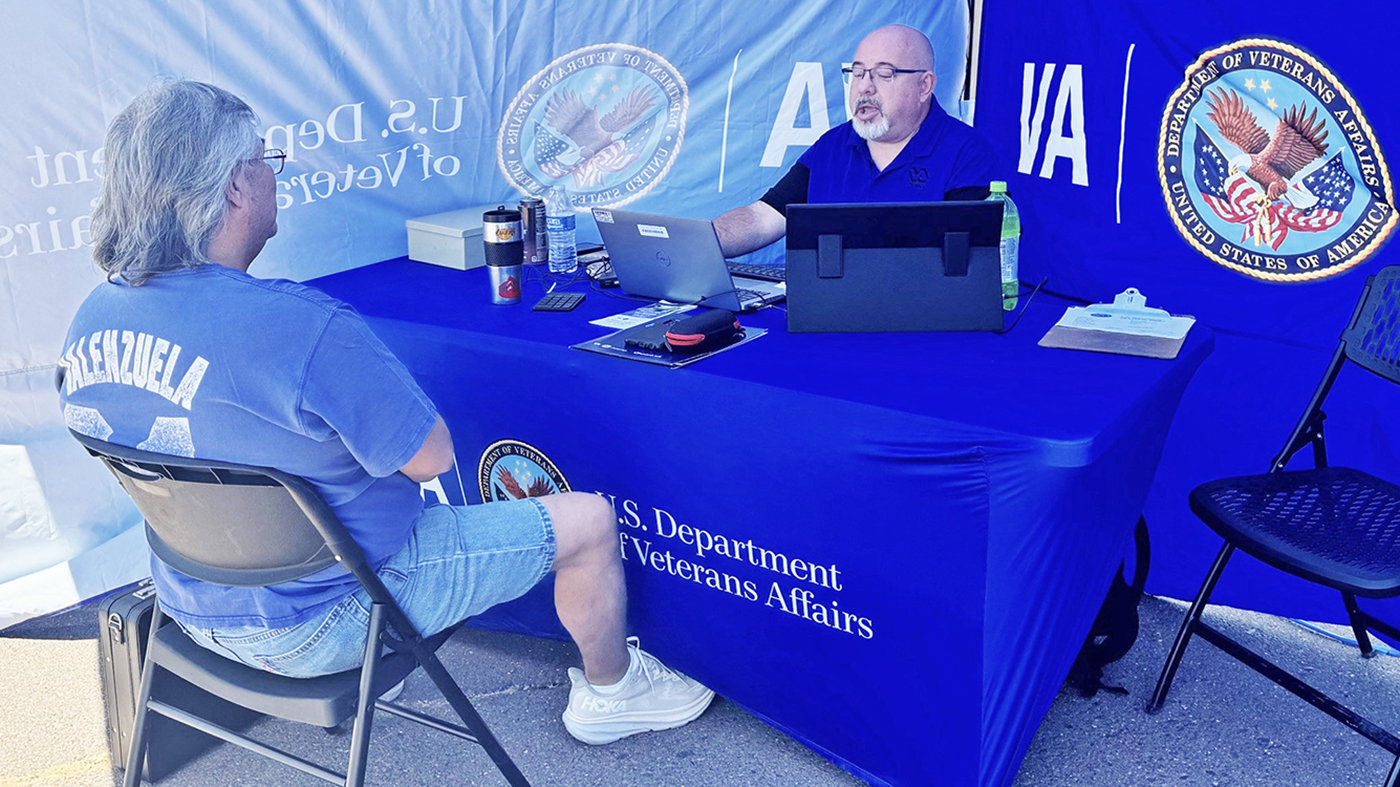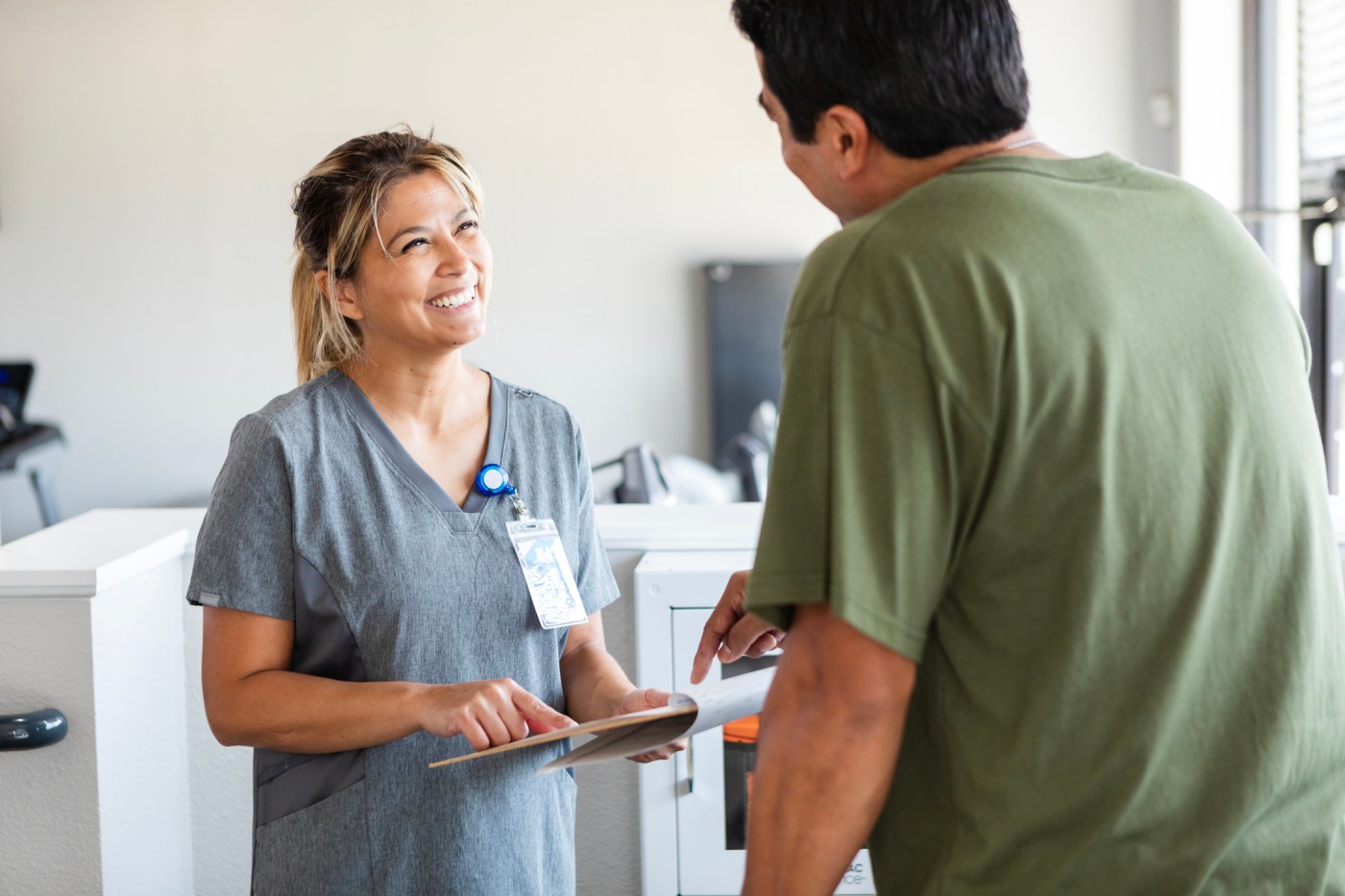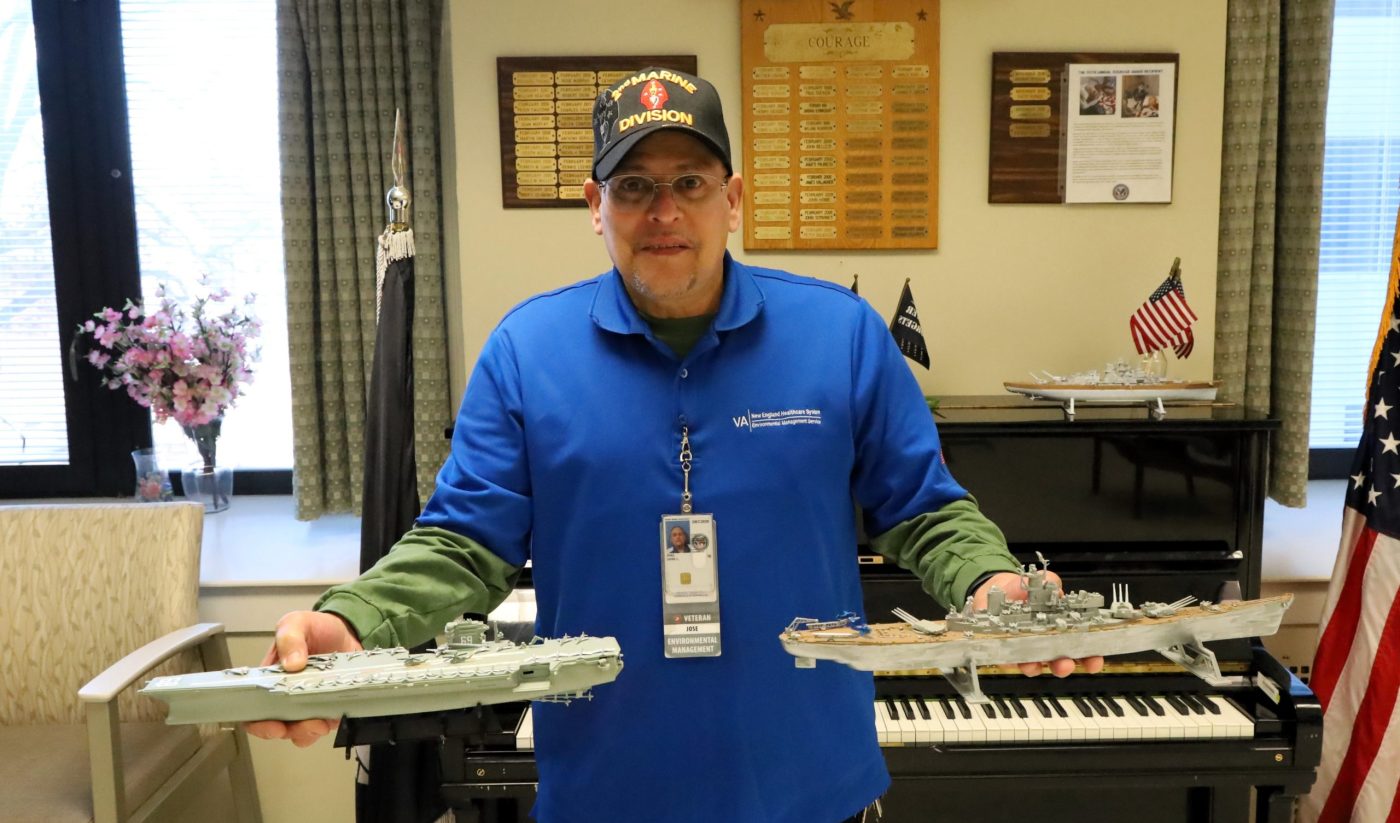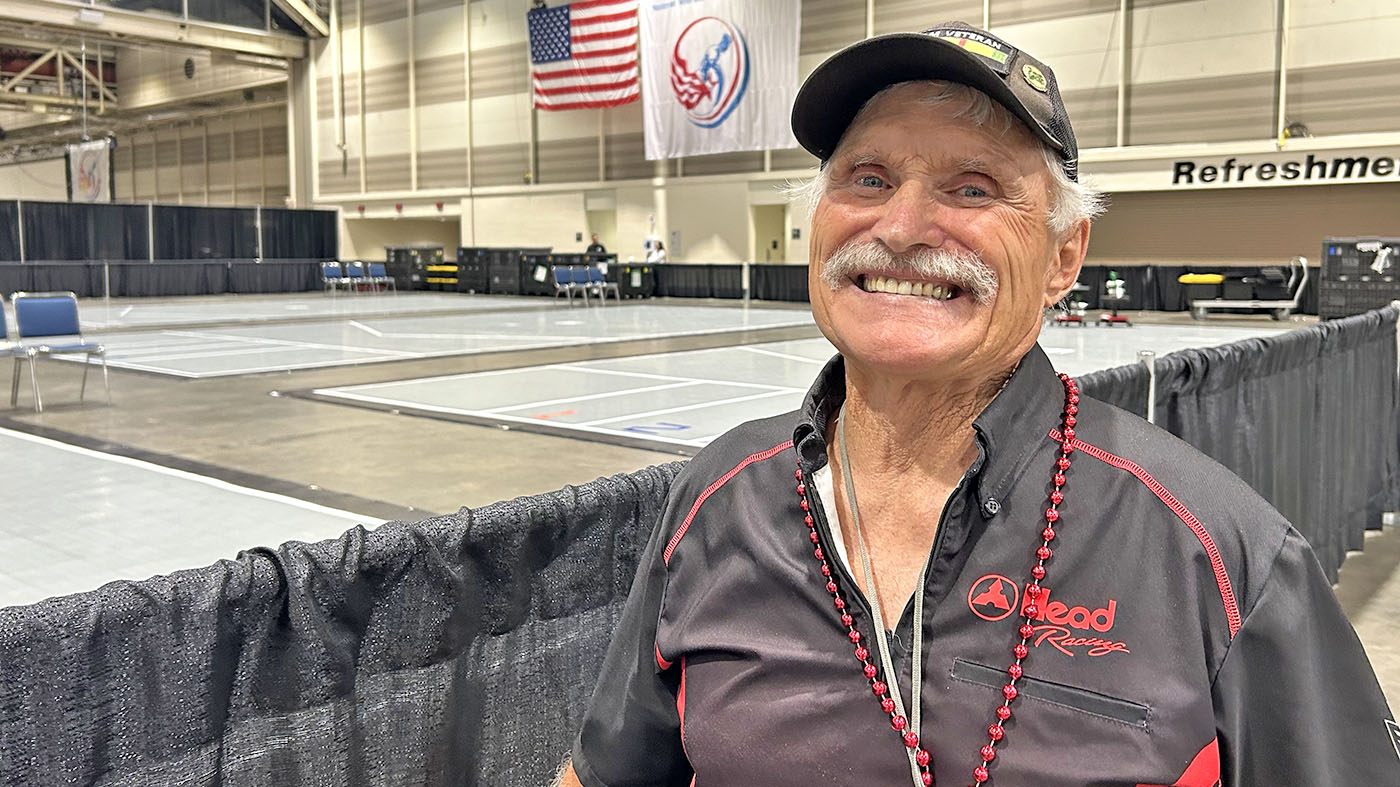VA is bringing health care and other benefits to Native American Veterans living in the highly rural areas of the Grand Canyon State.
Joshua Wear, a Rural Health coordinator with Northern Arizona VA, which provides services to about 34,000 Veterans over an area of more than 65,000 square miles, leads a team of VA personnel who frequently travel to remote areas to provide rural and Native Veterans VA resources that are normally harder for them to access.
Since May, Wear’s team has coordinated events in Tuba City, LeChee, Shonto, Rock Point, Hard Rock and Many Farms. At each event, Veterans were able to speak directly with VA representatives, enroll in VA health care, file disability claims and apply for tribal Veteran copayment exemptions.
“The biggest challenge is getting the word out to the Veterans and their families. Cell phone reception and internet connectivity is only so effective due to the rural nature of the communities, but we believe the more we are in the region and can talk to Veterans, the further word travels,” Wear shared.
Mobile medical clinic
Veterans were able to receive immediate medical attention for a wide range of conditions via a mobile medical clinic, which Northern Arizona VA has recently been deploying for events throughout Navajo Nation. Manned by a nurse practitioner and other clinical staff, the unit has nearly all the same capabilities as a brick-and-mortar clinic, including drawing blood, taking X-rays and prescribing medication.
“Many of the Veterans that came to the event who took advantage of the medical services had not seen a medical provider in many years and were highly complex cases,” Wear said.
Native American Marine Corps Veteran Ned Dan was glad to physically sit down with VA representatives to go over their health care records and pending disability claims without having to commute to areas where these services are more readily available.
“It’s great. I don’t have to travel to Prescott or Flagstaff and in the wintertime it’s tough to drive down. All the staff that are here are more than accommodating in answering questions and being helpful,” Dan said.
“We’re happy to bring that personal attention.”
Wear said Dan’s feedback is common among the Veterans he encounters at these events. “A lot of Veterans would rather speak to someone face-to face, and we’re happy to bring that personal attention. Our team takes the time to speak with each Veteran and their families, minimizing confusion on complex subjects.”
The VA rural health team is coordinating more events this summer all over Navajo and Hopi nations to continue their mission of increasing access to VA health care and services. They’ll next be bringing their services to Orayvi Village on July 9 from 9 a.m. to 2 p.m. and the Village of Tewa on July 10 from 9 a.m. to 2 p.m.
After that, they’ll be hosting a Veteran Resource Fair at the Dilkon Medical Center July 19.
Get more information about these and other upcoming VA events.
Topics in this story
Link Disclaimer
This page includes links to other websites outside our control and jurisdiction. VA is not responsible for the privacy practices or the content of non-VA Web sites. We encourage you to review the privacy policy or terms and conditions of those sites to fully understand what information is collected and how it is used.
More Stories
One strategy credited for the improvement is a focus on building trust and stronger patient-provider relationships.
Army and Marine Corps Veteran started making models after being hospitalized at Connecticut VA.
Veteran Hank Ebert is a bit of a superstar in the National Veterans Wheelchair Games. He has been attending since 1993.






